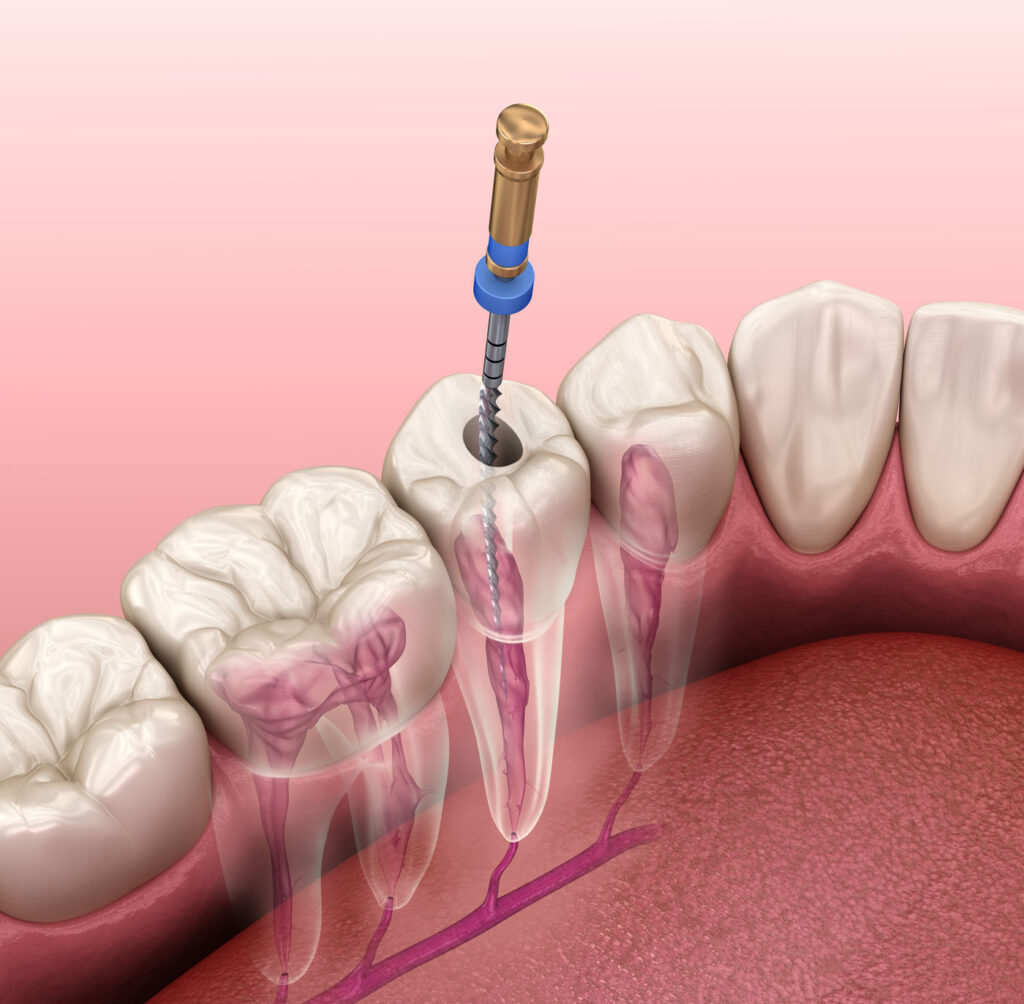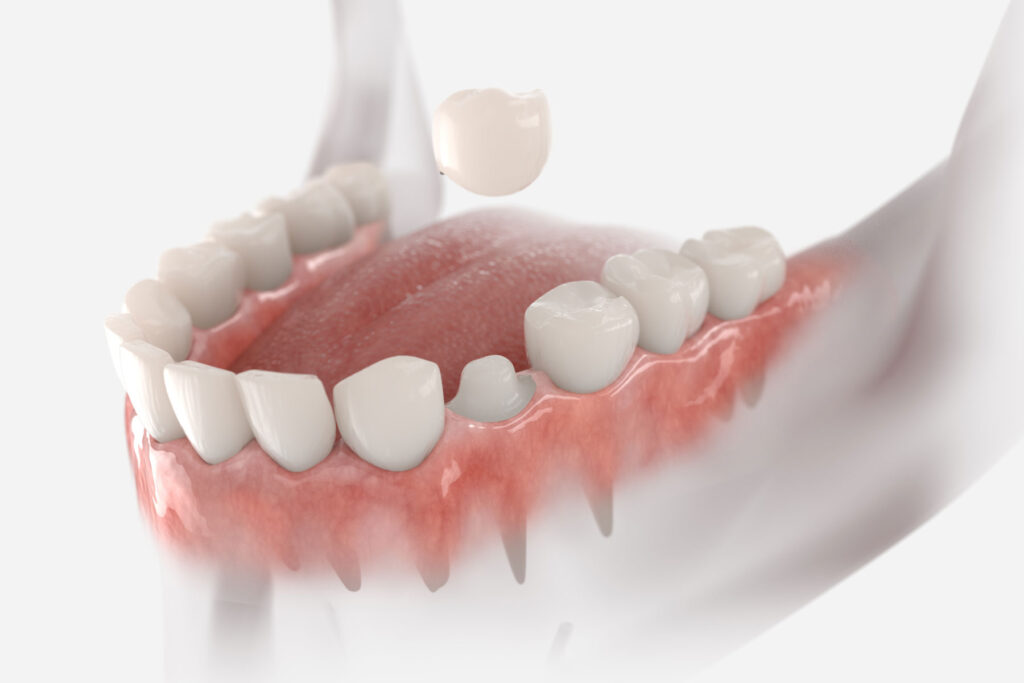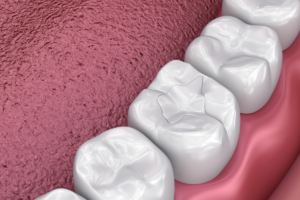Many Americans experience tooth loss due to genetic conditions, gum disease, injury, cavities, and tooth decay. There are techniques to prevent missing teeth and restore your smile. Root canals and dental implants are both helpful when a serious dental condition occurs.
What Is A Root Canal?
A root canal treatment, also known as endodontic treatment is a solution for teeth with dead nerves that develop when decay spreads into the tooth or extends through trauma to your teeth. This method will help you retain and refine your decayed tooth without pain. It involves cleaning out the pulp chamber of your target tooth and removing both nerve tissue and blood vessels before refilling the hollow pulp chamber with specific material which will prevent the tooth from getting reinfected. The restoration after the root canal treatment usually develops once the tooth permanently heals in about 9 months.
A root canal treatment, also known as endodontic treatment is a solution for teeth with dead nerves that develop when decay spreads into the tooth or extends through trauma to your teeth. This method will help you retain and refine your decayed tooth without pain. It involves cleaning out the pulp chamber of your target tooth and removing both nerve tissue and blood vessels before refilling the hollow pulp chamber with specific material which will prevent the tooth from getting reinfected. The restoration after the root canal treatment usually develops once the tooth permanently heals in about 9 months.

You may be suggested to get a crown after the process to cover the entire tooth. This will help you to protect your treated tooth in the future when it faces a greater risk of fracture in case of daily bite forces.
Root Canal Procedure
First, your tooth condition will be considered with the help of X-rays to assess the extent of the infection and the amount of the remaining tooth structure above the gum line. After planning your customized treatment process, your target tooth will be numbed and covered with a specific sheet of rubber which will keep your tooth dry. The dentist will open the inside of your mouth to clean out the pulp chamber, diminish the bacteria, and remove the damaged nerve and pulp tissue until the infection is resolved. Then, the rubber is used to fill the tooth pulp chamber, and once the root canal is settled, the restorative crown will be applied.
What Is A Dental Implant?
Dental implant surgery is a process in which your entire tooth is removed to be replaced with a dental implant that will heal in about 2-3 months before you get the final crown attached to it.
Dental implants are there to replace the tooth root and its crown.
Dental implant surgery usually consists of three procedures of tooth removal, implant integration assessment, and attaching the crown to the implant.
Once your target tooth is removed, the immediate placement of a dental implant will be done, which may involve a temporary crown. The implant will be settled in several days and then checked to ensure it is properly connected to the jaw bone.
Dental implant crowns will feel just like your natural teeth.
Implant surgeries are the best solution for broken and dead teeth. They are also a big help when a tooth is fractured or decayed. If you face the condition under 18 years of age, you may need root canal treatments.
Implant placement is best to be performed immediately once the tooth has been removed.

Root Canal Procedure Vs Dental Implant Procedure
No one can easily get along with tooth loss and a root canal means that you can retain your affected teeth without removing them. However, root canals are not always successful and some amount of bacteria may remain even after cleaning and begin to multiply. If bacteria begin to multiply, re-treatment of the existing root canal will be suggested. Performing further root canals is not always easy and can lead to further drawbacks or tooth extraction.
Dental implants, however, can replace your affected tooth with a natural-looking one. Implants will fuse directly to the jaw bone and often last for years with a success rate of about 97%, while root canals may fail. The failure of your root canal can weaken the affected tooth and lead to an extraction. At this stage your doctor will likely advise you to invest in a dental implant to permanently fix the problem.
You are the one who decides to keep your natural teeth with the help of a root canal or to have a dental implant. You should consider the differences between root canals and dental implants before undergoing the proper treatment.
Whether you would like to benefit from root canals or implants, you can trust our dentists at Aria Dental.
We can also help you get rid of any oral diseases and live happier, healthier lives with the help of modern techniques.
Even if you are not concerned about any specific issues, we do everything in our power to ensure that nothing is threatening your overall health. Whenever you decide to share your concerns with us, you can contact us.



















